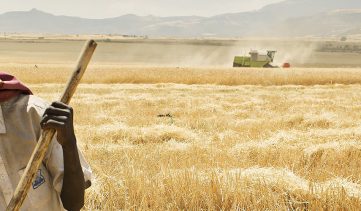Rwanda is making significant strides at developing a sustainable food system. Centering initiatives on its flagship development program, Vision 2020, the government has placed high priority on land tenure reforms, rural development, agricultural investment, and climate-smart and gender-sensitive approaches. Increasingly, the government is encouraging private sector involvement by reducing barriers to doing business, thus attracting foreign investors along the entire food value chain. Despite great progress, such as improving productivity of staple food production, hunger and undernutrition are big challenges that Rwanda still faces. Land tenure reforms, on the other hand, present a mixed picture—despite increasing food production, the government’s approach to land-use consolidation, regional crop specialization, and monocropping could prevent smallholders from using, managing and benefiting from their land.
Related Posts

Webinar: The Productive Safety Net Program and the Agri-Food System in Ethiopia : Key Outcomes and Challenges
Time: Wednesday, June 9, 2021 from 2.30 PM – 4.00 PM Addis Ababa (GMT+3) Co-Organized by: the National Information Platform for Nutrition (NIPN), the Ethiopian Public Health Institute (EPHI) and the … [Read More...]

Ethiopia webinar: Thought-provoking perspectives on child stunting
The past decade has seen unprecedented attention going to undernutrition, and drastically reducing child stunting has become a global development objective. The focus on linear growth retardation and … [Read More...]
